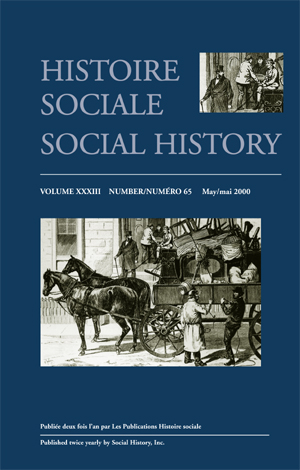Some Remarks on the Rise and Fall of Discourse Analysis
Abstract
The debate that might have developed in Canadian historiography, about how new tools from social semiotics and cultural studies could be deployed both by socialist historians and by those asking newer, less class-based questions, never did happen. Instead, what appeared in print was invective. The impression was created that to be theoretical was to be anti-labour history and anti-Marxist, and young progressive historians tended to conclude that, if they wanted to ask the “old” questions about class power, women’s oppression, and imperialism or racism, there was no need to read any theory. The potential for a number of overlapping debates on key methodological issues was thus wasted. The new social history gave us a number of new tools to do research, but the sophistication in research methods was generally employed to explore some rather simple (if important) research questions. The basic question driving socialist feminist inquiries as well as Marxist ones was: whose interests are served? The author explains her conclusion that it may be more productive to put inquiries into interests temporarily on hold, and experiment with questions that focus on effects.Downloads
Published
2000-05-01
Issue
Section
Social History and Postmodern and Postcolonial Theory


